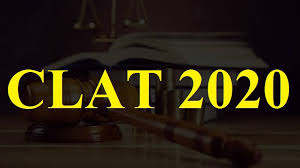Supreme Court Refuses To Cancel CLAT 2020 Or Put Stay On Counselling Process
NEW DELHI: The Supreme Court on Friday refused to either cancel the Common Law Admission Test (CLAT) 2020 or stay the counselling process and asked five candidates, who were seeking quashing of the exam alleging technical glitches, to give their grievances within two days to the redressal committee.
A Bench comprising Justices Ashok Bhushan and M R Shah was informed by senior lawyer P S Narasimha, appearing for consortium of NLUs, that there is a grievance redressal committee headed by a former Chief Justice of India which can consider the issues of the petitioners.
“We are of the view that the petitioners shall submit the grievances within two days from today and the grievance redressal committee will take a decision on the complaints,” the Bench said in its order.
“We cannot stop the counselling,” the Bench told senior advocate Gopal Sankaranarayanan, appearing for the petitioners.
Advocate Sankaranarayanan informed the bench that there were technical glitches in the online exam and it had certain incorrect questions.
He claimed that even the software did not record some of the answers correctly and around 40,000 objections with regard to various aspects of the CLAT have been received.
“There is no response from the consortium of NLUs on around 19,000 objections. There has been a software defect which led to a situation which has never happened before,” Sankaranarayanan said.
“There are many mistakes in the question papers and answer key. For the first time, only 3 per cent students have crossed the 50 per cent marks of total 150 marks,” he added further, quoted the Indian Express.
“This is a difficult time,” the bench observed.
In response, Narasimha opposed the plea saying that there cannot be unending counselling for admission during the pandemic informing that former CJI Rajendra Babu who is the head of the ombudsman and will be looking into the serious complaints.
He also mentioned that unnecessary complaints have been raised with regard to certain questions. This year, raising objections was free of cost.
“No payment is required to be made for raising objections. 146th and 150th question raised a lot of objections and thus those questions were dropped as per expert committee recommendation,” he said.
On September 21, the Supreme Court had rejected NLSIU Bengaluru’s notification for conducting a separate entrance exam.
CLAT is a centralised national level entrance test for admissions to 23 National Law Universities (NLUs) in India and was held on September 28.


Comments are closed.